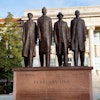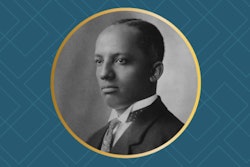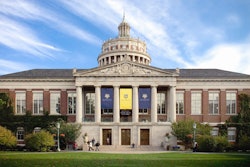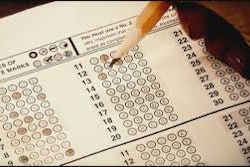After leaving West Virginia University to enroll in a less expensive, home-state institution, it didn’t take North Carolina native Daquille Campbell long to establish himself as a thriving mathematics major at North Carolina Central University (NCCU).
Despite having to forgo the petroleum engineering studies he originally sought at West Virginia, Campbell forged an entirely different yet rewarding path. Between his first and second year at NCCU, he worked with a faculty mentor, landed a spot in a summer honors research program and became a scholarship student.
This past school year, Campbell, who is on track to complete his bachelor’s degree in spring 2016, placed first in the computer science and information management track of a research competition at the 2015 Emerging Researchers National Conference in STEM.
“As a STEM student at North Carolina Central, I get acknowledged for that and for my hard work,” he says.
HBCU best practices
As one of thousands of students enrolled in an HBCU STEM program, Campbell has benefited from a range of best practices that experts have long cited as key factors in STEM student success at the undergraduate level. Among such practices are intensive faculty and peer mentoring of students, summer bridge courses, peer tutoring, supplemental instruction and student pursuit of research with faculty mentors.
One “reason why HBCUs remain so necessary is that they still have an outsize role in preparing students to meet urgent national priorities in STEM fields, in filling teaching jobs, and in uplifting boys and men of color,” U.S. Education Secretary Arne Duncan told officials last year at the National HBCU Week Conference in Washington.





















